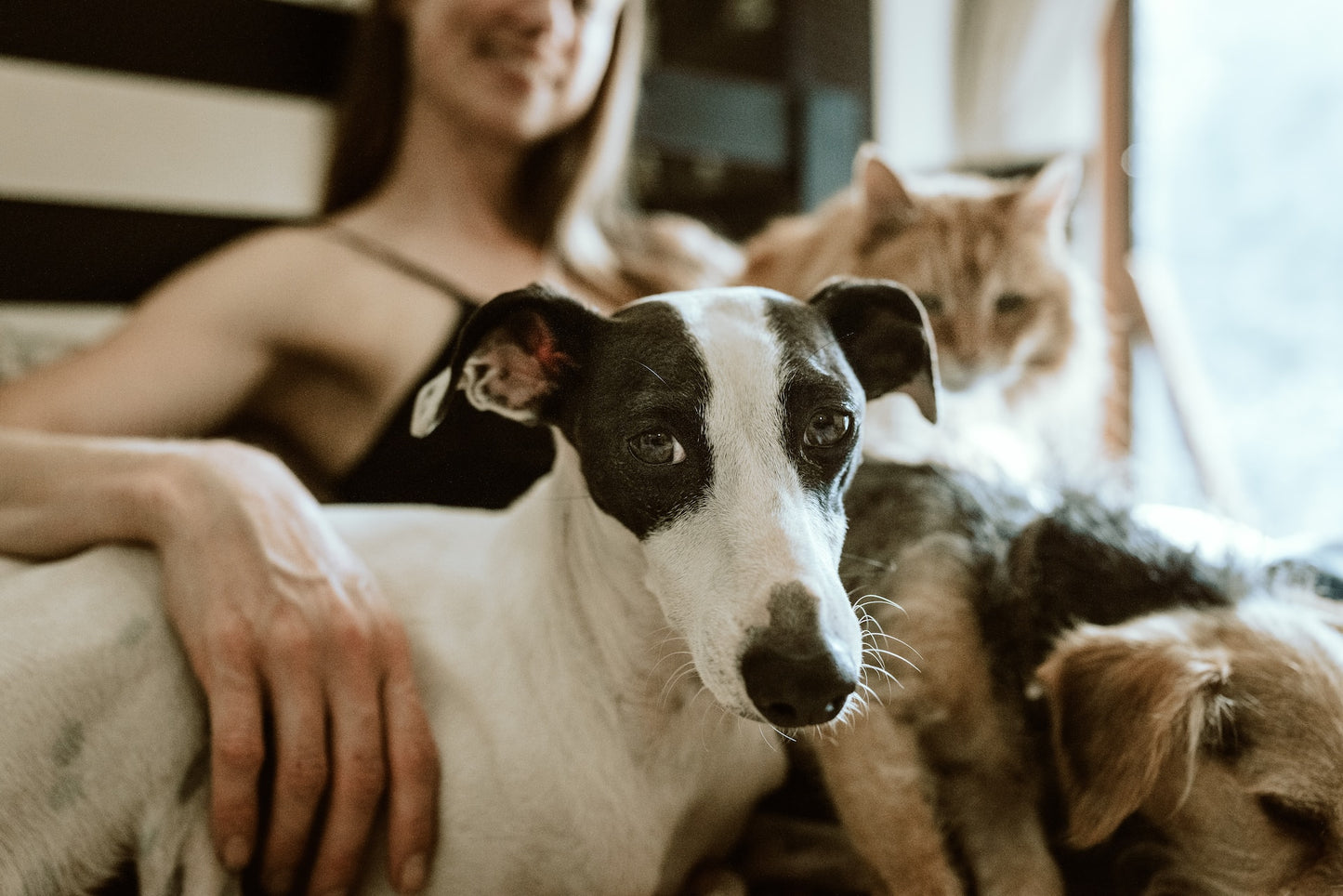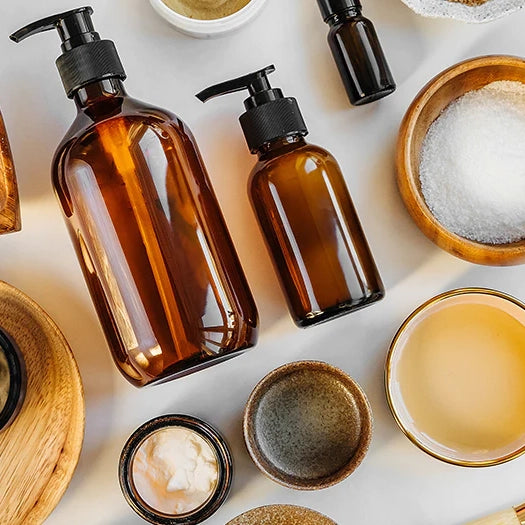
While we certainly embrace the benefits of using natural and organic ingredients, not just in our skincare products, but for our general wellbeing, it’s absolutely vital we are mindful of any potential hazards, especially when it comes to our beloved pets.
Many people may not know that, if used improperly, essential oils can be toxic to dogs. So, what are the potential risks and how can we navigate the world of aromatherapy in a pet-safe manner?
The Growing Popularity of Essential Oils:
In recent years, essential oils have gained immense popularity as an all-natural alternative to synthetic fragrances and remedies. These concentrated plant extracts boast a number of therapeutic properties, such as relaxation, stress relief, and skincare benefits, which make them a great addition to our day-to-day lives.
However, while essential oils can provide many benefits to humans, they can pose a significant health hazard to our furry companions, particularly dogs.
Why Essential Oils Can Be Harmful to Dogs:
Dogs have a highly sensitive olfactory system, meaning their sense of smell is much more potent than ours. Essential oils, with their intense aroma and volatile nature, can overwhelm a dog's sensitive nose, potentially leading to respiratory distress, irritation, or even toxicity. Furthermore, dogs metabolise certain substances differently than humans do, making them more vulnerable to adverse reactions.
Essential oils can enter a dog's body through inhalation, skin contact, or ingestion. It is crucial for pet owners to be aware of the potential dangers and exercise caution when using essential oils in a household shared with dogs.

Risks and Essential Oils to Avoid:
While we encourage the use of essential oils for personal well-being, it's essential to keep them out of your dog's reach and not directly apply them to your pets. Here are some of the most hazardous essential oils for dogs:
-
Tea Tree Oil: While it’s commonly used for its antiseptic properties, it can be toxic to dogs and cause symptoms like drooling, vomiting, weakness, and in severe cases, even tremors or seizures. Severe poisoning in dogs and cats has occurred from skin application of concentrated tea tree oil.
- Peppermint Oil: Known for its refreshing scent and digestive benefits for humans, it can lead to gastrointestinal upset, central nervous system depression, and liver damage in dogs.
- Eucalyptus Oil: Often used for respiratory support, eucalyptus oil can lead to excessive drooling, lethargy, and potentially more severe symptoms if ingested.
- Citrus Oils (Orange, Lemon, Lime, etc.): Citrus essential oils contain compounds that can cause skin irritation and digestive issues in dogs.
- Cinnamon Oil: This oil is a potent skin irritant and can cause vomiting, diarrhoea, and potential respiratory issues in dogs.
- Camphor: Causes stimulation of the central nervous system and seizures.
- Clove Oil: Has been known to cause depression of the central nervous system and liver injury in dogs.
-
Oil of Wintergreen: This oil contains a high concentration of methyl salicylate which can result in abdominal pain, vomiting, panting, confusion, seizures, coma and death.
Safe Alternatives and Precautions:
If you still wish to use essential oils in your home, ensure your dog's safety by following these precautions:
- Use a Diffuser in a Safe Area: If you use a diffuser, place it in a room your dog can't access and use a minimal amount of essential oil.
- Never apply concentrated essential oils to your pets’ skin or coat.
- Store Oils Securely: Keep essential oils out of your dog's reach and clean up any spills promptly.
- Watch for Signs of Discomfort: If you notice any unusual behaviour in your dog, such as excessive drooling, coughing, or lethargy, remove them from the area immediately and contact your veterinarian.
- Consult with a Vet: Always consult your veterinarian before introducing any new scents or products into your home, especially if you have a dog with pre-existing health conditions.
While essential oils can be a valuable addition to your natural skincare and well-being routines, it is vital to prioritise the safety and health of our furry companions.
If you suspect your pet has been exposed to any essential oil, you can call the Animal Poisons Centre in Australia on 1300 869 738 for advice. Their service is free for all pet owners.




